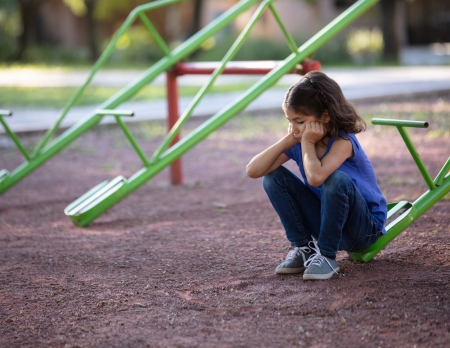1/26/24 blog post
can kids get lonely?
It’s normal for everyone to experience periods of feeling lonely – even kiddos! It may be hard to recognize when your child may be feeling lonely, so we asked Dr. Mary Beth DeWitt, PhD, division chief of pediatric psychology at Dayton Children’s Hospital, how to recognize and respond to signs of loneliness, as well as how to connect with their child about their feelings.
recognizing loneliness
Children may not know how to express with words they are feeling lonely. They may express loneliness a few different ways:
- Complaining about being bored
- Saying “I’m fine”
- Saying they have no friends or complaining about their friends
- Wishing to spend more time with their parents
- Changes in behavior like clinginess or seeking negative attention
It’s important to watch for changes in behavior as the above ways could indicate feelings of loneliness. Make sure you have regular conversations with your child about their days and activities to understand what they might be feeling. We can help teach our kids what some emotions mean and feel like (although we should not just expect that we know how our kids feel or how to solve their problems).
risks of loneliness
We know our minds and bodies are connected, so both can be affected by social isolation or lack of connectedness. Physical and mental signs of loneliness may include increased anxiety, depression, poorer sleep, unexplained aches and pains and poorer self-esteem.
how can you help a child who is lonely?
Some evidence suggests that it is best to help manage the thoughts associated with loneliness by getting children more involved. Parents can begin a conversation by talking about any concerns their child might be having, and helping them explore their interests and activities. Help them practice ways to talk to others if they are feeling nervous. Many friendships begin with common interests. Consider having your child participate in an activity of interest to them (not all kids love sports, consider a youth group at church, Scouts or library time). Arrange play dates to help kids feel connected.
Connect with their teachers to better understand their social pattern at school. Consider ways to help build their connection in the school environment (small group activities, classroom helper jobs, etc.)
By recognizing and responding to signs of loneliness in children, parents can proactively promote their child’s mental and physical well-being. Staying engaged, having conversations and getting children involved in social connections with kids of common interests can help with the challenges of feeling loneliness and encourage stronger social bonds.





